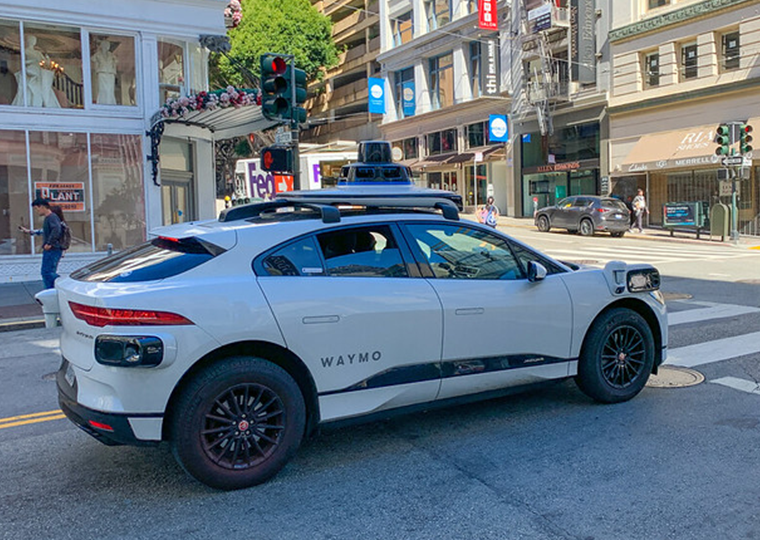Study finds interest in screening embryos for education propensity, especially if everyone else is doing it
It’s no secret that a lot of U.S. parents go to considerable lengths to get “the best” college education possible for their kids.
In communities where parents can afford it, forking out for expensive prep schools, test tutoring and resume-building sports are common ways to increase a student’s chances of landing a spot in a top school. Bribing college coaches, faking test scores and moving kids to less prestigious high schools to make modest accomplishments look better are the more scandalous tactics of late, but not particularly surprising.
In a study published in Science, Americans were asked if they would be similarly inclined to use genetic technologies to help their unborn children get into a top 100 college. Many said yes. Younger people especially expressed a willingness to do it, more so if a lot of others were doing it.
Opt In to the Review Monthly Email Update.
The authors of the study include an ethicist and social scientists with experience in genetic research: Geisinger Health System’s Michelle N. Meyer, the National Bureau of Economic Research’s Tammy Tan, UCLA Anderson’s Daniel J. Benjamin, Harvard’s David Laibson and University of Southern California’s Patrick Turley.
How Gene Editing and Selection Could Affect IVF
In January 2020, the researchers asked a representative sample of about 6,800 individuals to assume that in vitro fertilization treatments had resulted in a set of their own healthy embryos. They were then asked if they would use either of two genetic technologies to increase the odds that their offspring attended a highly ranked college. For study purposes, respondents were told to assume that these interventions were free and safe, but they were told to assume a fairly realistic impact: Their child would have a 5% chance of getting into a top 100 college with the technology, instead of a 3% chance without it.
The first service involves an embryo gene editing procedure, commonly known as CRISPR, to change the embryo’s genome before implantation. (Using CRISPR to create inheritable genetic changes in a human embryo is actually banned in the U.S. and about 70 other countries, largely due to safety concerns. With further technical advances, however, in the future it might become possible to use CRISPR to safely edit multiple genes at once, which collectively have some influence on cognitive and personality traits that affect school performance.)
The second service is embryo selection for educational attainment. In this case, scientists look at thousands of gene variations in a single genome to assign a numerical value, called a polygenic index, on the genome’s propensity to complete formal education. Couples that produce numerous healthy embryos and need to select which ones to implant can use each embryo’s index to see which is most likely, according to their genomes, to complete the most years of formal education.
There are many reasons, explained in detail by some of the same researchers, that using embryo selection would, on average, have only a modest impact on years of schooling outcomes in your own offspring. For example, 10 healthy embryos produced by one couple are usually fairly alike genetically, so their genetic propensity for formal schooling doesn’t differ a great deal. Environmental factors that arise after birth, such as differences in the parenting, peers and schooling they experience, are more likely to influence which one goes to Harvard.
And yet, as the science of genetic testing and selection advances, commercialization is likely to encourage efforts at embryo selection. While no company is currently offering embryo selection for educational attainment, multiple companies are already working with IVF clinics to offer patients the option of selecting an embryo with a lower chance of developing diabetes, cancer, heart disease, inflammatory bowel disease, Alzheimer’s disease or schizophrenia as an adult, and the founder of one embryo selection company has not ruled out offering to screen for nonmedical traits such as educational attainment. Thus, researchers are investigating not just the actual potential of genetic selection but also perceptions around it.
The Shifting Morals of Embryo Selection and Editing
The study asked individuals their willingness to use each service to increase the odds that their offspring will attend a top 100 ranked college. The respondents were asked the same questions about SAT prep classes, a far less controversial intervention for improving college acceptance outcomes, and asked to make the same assumptions that it was free, safe and would boost their child’s chances of getting into a top 100 school from 3% to 5%.
Twenty-eight percent of participants said they were likely to use gene editing; 38% were likely to use the genetic selection method; and 68% were likely to use SAT prep classes.
Additionally, some respondents were told that the specific services — gene editing, embryo selection or SAT prep classes — were used by 1 out of every 10 “people having babies,” or in the case of the classes, people who “have high school-age children.” Other respondents were told that usage was 9 out of 10. As predicted, more respondents were willing to use the genetic services when they believed they were more common procedures.
The moral acceptability of these genetic interventions “for medical and nonmedical traits” was reported to be roughly the same across age groups. Some 41% reported that gene editing was morally acceptable, or not a moral issue, for “medical and nonmedical traits.” About 58% reported the same for gene selection, while 76% reported no moral objection to SAT prep classes. But the under 35-year-old set said they were more likely to use them.
Noting how quickly new technologies can spread, and the social risks of genetic selection of embryos, including exacerbating inequalities, the researchers argue that the time for a national conversation about possible regulations is now. The authors note that their survey about a complex technology that is only briefly described is not a substitute for the considered judgments that should emerge from such a sustained national conversation about the technology’s expected outcomes and risks. It is not clear, for instance, whether the same people would still want to use genetic selection for embryos if they were more fully informed.
Featured Faculty
-
Daniel J. Benjamin
Professor of Behavioral Economics and Genoeconomics
About the Research
Meyer, Michelle N., Tan, Tammy, Benjamin, Daniel J., Laibson, David, and Turley, Patrick. (2023). Public views on polygenic screening of embryos. Science, 379(6632), 541–543. https://doi.org/10.1126/science.ade10833






